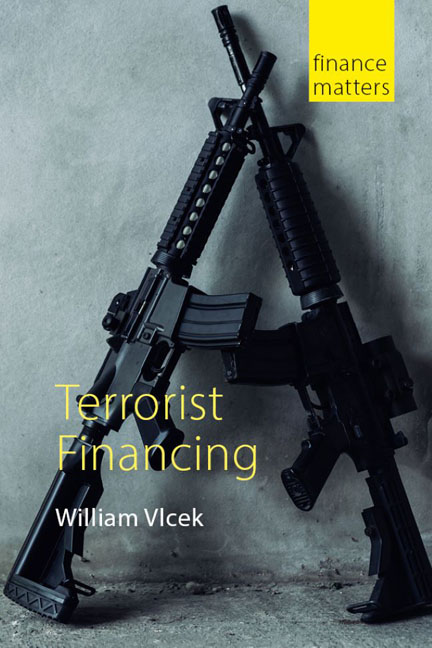Book contents
- Frontmatter
- Contents
- Preface and acknowledgements
- Acronyms and abbreviations
- 1 Foundations and origins
- 2 Terrorist financing in the twentieth century
- 3 In the aftermath of 9/11
- 4 Collective action against terrorist financing
- 5 Making CFT global
- 6 Dealing with new payment technologies
- 7 The financing of Islamic State
- 8 Reflections on combatting terrorist financing
- Notes
- References
- Index
3 - In the aftermath of 9/11
Published online by Cambridge University Press: 20 January 2024
- Frontmatter
- Contents
- Preface and acknowledgements
- Acronyms and abbreviations
- 1 Foundations and origins
- 2 Terrorist financing in the twentieth century
- 3 In the aftermath of 9/11
- 4 Collective action against terrorist financing
- 5 Making CFT global
- 6 Dealing with new payment technologies
- 7 The financing of Islamic State
- 8 Reflections on combatting terrorist financing
- Notes
- References
- Index
Summary
For a time after 2001 a frequent approach for introducing the topic of terrorist financing was to relate the announcement of Executive Order 13224 in the White House Rose Garden on 24 September 2001.1 The “Executive Order on Terrorist Financing: Blocking Property and Prohibiting Transactions With Persons Who Commit, Threaten to Commit, or Support Terrorism” marks the emergence of a more robust and aggressive CFT regime. Along with establishing terrorist finan¬cing as the initial battlefront in the US Administration's “Global War on Terror”, the “Rose Garden” speech of President George W. Bush provided several refrains that would be repeated regularly (Bush 2001: n.p.). These common quotations included:
Today, we have launched a strike on the financial foundation of the global terror network.
We have developed the international financial equivalent of law enforcement's “Most Wanted” list. And it puts the financial world on notice. If you do business with terrorists, if you support or sponsor them, you will not do business with the United States of America.
We will lead by example. We will work with the world against terrorism. Money is the lifeblood of terrorist operations. Today, we’re asking the world to stop payment.
But recall that the US was not one of the four states that had ratified the International Convention for the Suppression of the Financing of Terrorism in 2001. This situation was raised in the Rose Garden speech and President Bush said that he would be asking the Senate to ratify the Convention (which was recorded by the UN as 26 June 2002).
Many of the people living in Europe and North America on 11 September 2001 will have strong memories of that day and the live news reports they may have watched. It is, however, a very Western-centric view of the events. While suggesting the attacks had global significance, David Lyon reminds us of the Western-centric nature of the narrative surrounding the destruction of the World Trade Center. “True, their perceived significance differs from place to place. For instance, the national daily newspaper in Zambia granted only a couple of column inches of an inside page to the 9/11 attacks, on September 13” (Lyon 2003: 3).
- Type
- Chapter
- Information
- Terrorist Financing , pp. 27 - 44Publisher: Agenda PublishingPrint publication year: 2022

